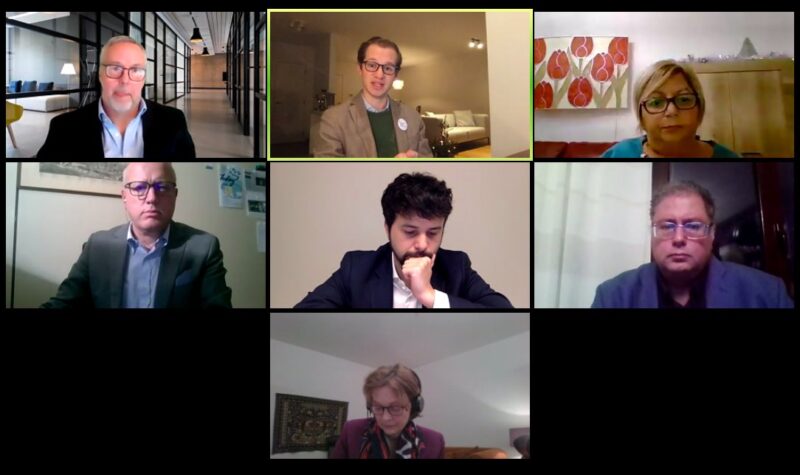On Wednesday, Allied for Startups and MEP Brando Benifei co-hosted a webinar “Digital Health innovation & startups during COVID-19 and beyond” to discuss the opportunities and challenges the digital health sector is facing. The video recording is available here.
We thank the panelists for a thought-provoking and inspiring discussion. The speakers on the panel included:
– Brando Benifei (Member of the European Parliament)
– Ceri Thompson (Deputy Head of the eHealth, Well-Being and Ageing Unit at DG CNECT)
– Antonella Celano (President of the Italian Association of People with Rheumatological and Rare diseases)
– René A.J. Loek (Pinktrainer)
– Ettore Turra (Trentino Salute 4.0)
– Pier Giuseppe Meo (Hassisto)
What did we learn from the digital health innovators?
1. Data is the food of innovation
According to Mr Meo, enhancing access to two types of data is important to support digital health innovation. First, it’s important to know how many people in Europe have certain diseases – having access to this statistical data would help innovators to plan the potential reach and costs of their products. Moreover, access to secondary anonymous health data is essential to building and testing AI solutions – the more data is available, the less time and the lower the cost to bring a digital solution to the market.
2. Reimbursement frameworks are needed to increase the uptake and accessibility
For digital health innovation to benefit patients and empower health care professionals, it is essential for digital solutions to be reimbursed by the insurance systems. According to Mr Loek, facilitating the discussion around reimbursements and value-based healthcare model on a European level could support the accessibility of digital health products and improve health outcomes across Europe.
3. The importance of dialogue between key stakeholders
All participating innovators emphasised that patients’ engagement is essential in the development of digital health solutions – from identifying the issues, engaging them in studies and collecting data in the pilot phase to receiving continuous feedback for improving the usability and usefulness.
What do policy makers say?
MEP Benifei emphasised that startups provide fundamental opportunities for tackling the pandemic and improving healthcare with patient-oriented products. Digital health has enormous potential but a more united European approach is needed to provide the right regulatory frameworks and pathways for startups to scale across borders. Mr. Benifei reiterated policy maker’s duty to reduce unnecessary obstacles to health innovation.
Dr Thompson (EC) presented EU initiatives aimed at supporting the exchange and reuse of data for research and innovation, linking health registries, enabling cross-border electronic health records, supporting and deploying interoperable eHealth infrastructure. European Health Data Space is at the forefront of these initiatives.
In response to the needs for better access to health data expressed by the entrepreneurs, Dr Thompson noted that DG CNECT is working on creating data sets and understanding how they can be put to use by different stakeholders in the best way. She emphasised an initiative aimed at creating open platforms which will reduce barriers to access.
What do Patients Organisations say?
Ms Celano represented the network of 50 Patient Organisations involved in the PDHA. According to her, building bridges between patients, innovators and policy makers is key not only in supporting the digital transformation in healthcare but also in ensuring the accessibility of digital solutions. Who should pay for digital solutions and how can they be integrated into existing healthcare systems? How can we ensure fair and equal access across geographical boundaries? Navigating these questions requires collaboration between all stakeholders, including the active involvement of patients in the decision-making process.
Conclusion
Digital health entrepreneurs, policy makers and Patient Associations reiterated that COVID-19 has accelerated the digital transformation of healthcare but also highlighted the challenges that must be addressed. Developing legislation and infrastructure for health data exchange and reuse, addressing regulatory barriers, enhancing eHealth interoperability across borders, building trust amongst patients and innovators, and starting a European dialogue about how digital solutions could be reimbursed and accessible – these are some of the key challenges facing the digital health ecosystem as we are entering 2021.
At Allied for Startups, we will continue to build conversations between startups, policy makers and stakeholders of the European healthcare ecosystem.

